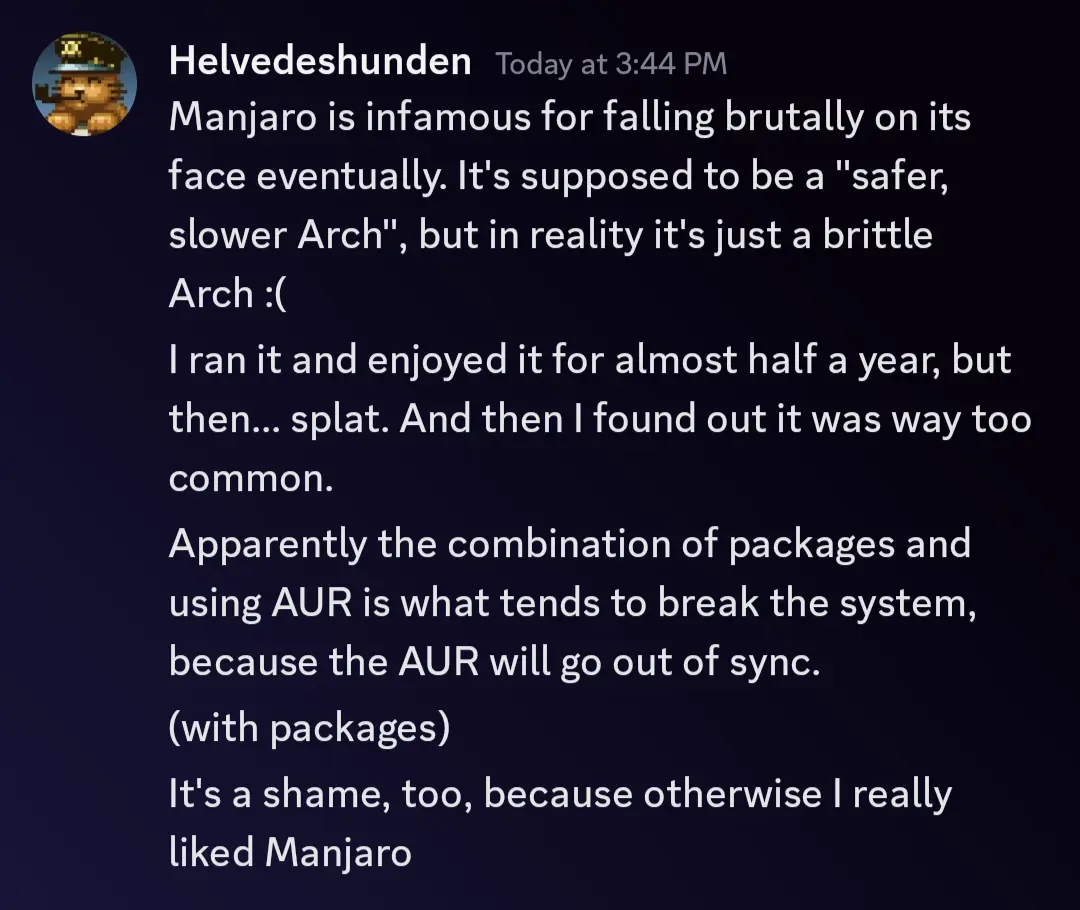249
you are viewing a single comment's thread
view the rest of the comments
view the rest of the comments
this post was submitted on 21 Dec 2023
249 points (94.3% liked)
Linux
48721 readers
956 users here now
From Wikipedia, the free encyclopedia
Linux is a family of open source Unix-like operating systems based on the Linux kernel, an operating system kernel first released on September 17, 1991 by Linus Torvalds. Linux is typically packaged in a Linux distribution (or distro for short).
Distributions include the Linux kernel and supporting system software and libraries, many of which are provided by the GNU Project. Many Linux distributions use the word "Linux" in their name, but the Free Software Foundation uses the name GNU/Linux to emphasize the importance of GNU software, causing some controversy.
Rules
- Posts must be relevant to operating systems running the Linux kernel. GNU/Linux or otherwise.
- No misinformation
- No NSFW content
- No hate speech, bigotry, etc
Related Communities
Community icon by Alpár-Etele Méder, licensed under CC BY 3.0
founded 5 years ago
MODERATORS

Have you considered using Arch on which Manjaro is based?
This way you won't have issues with AUR. It's not hard to install, you can use
archinstallhelper if you want, it's available in the default installation media.If they want a full-fledged system running Arch, then EndeavourOS might be the best bet. Archinstall is great for quickly installing Arch but there's still quite a lot of set-up required after that, and for some people, they don't really want to do that. EndeavourOS is essentially a ready-made Arch set up (or as another person said here, a very opinionated Arch install), and is based on Arch's repos but has its own extra repo for its own software while Manjaro holds the packages back for two weeks (which creates sync problems with, say, the AUR)
there's also Endeavour which I'm pretty sure uses the Arch repos
Uses exactly the Arch repos and kernel. EndeavourOS is more like an opinionated Arch install than a stand-alone distro. This is not a negative comment as I am an enthusiastic EndeavourOS user.
Fellow EOS user and this is a hilarious yet accurate description. Still have vanilla arch but EOS on my laptop now since I tend to mess with it often.
i too am a satisfied endevouros user. its great if you want something like manjaro, that doesnt break, or something like arch, but easier to get started.
i also have not had manjaro break, but its what it's known for, so people can be reluctant to use it
Or you could switch Manjaro to the unstable repos which mirror Arch
You can do this, and I have, but there can be issues during the switch if you are not careful.
The machine I use as my Jellyfin server used to be Manjaro and is now vanilla Arch ( having migrated it from Manjaro to Arch in place ). It still has a few quirks though. The quirks do not matter for what I use it for ( it is rock solid for Jellyfin ) but anytime I have to reboot or use the desktop, I am reminded. Nothing too serious and nothing I could not fix with a little time of course. That machine is purely functional though and I do not want to spend any time on it. Since my video is all on a second drive, I will probably nuke it and do a fresh EndeavourOS install one of these days. It would be much faster to re-install Jellyfin than to fix all the little warts. The other Manjaro systems I had were replaced with fresh EndeavourOS installs.